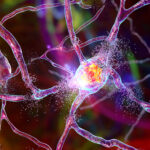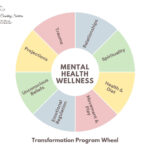Have you ever noticed that feeling of accomplishment after completing a tough task, the surge of excitement before a date, or the satisfaction of checking something off your to-do list? These experiences all share a common thread – dopamine. This powerful neurotransmitter plays a critical role in our motivation, reward system, and overall mental well-being. Let’s delve deeper into the fascinating world of dopamine and explore its connection to mental health.
Dopamine: The Body’s Reward System
Dopamine is a chemical messenger in the brain that acts as a motivator. It fuels our drive to seek out pleasurable experiences and reinforces behaviors that lead to rewards. When we engage in activities we enjoy, dopamine floods our system, creating a feeling of satisfaction and motivating us to repeat the behavior. This reward system is essential for our survival, as it encourages us to seek out food, water, and social connection – all crucial for our well-being.
The Dopamine Imbalance and Mental Illness
While dopamine is vital for our mental health, imbalances in its production or activity can contribute to various mental illnesses. Here’s a look at how:
- Low Dopamine: Reduced dopamine levels are associated with symptoms of depression, such as decreased motivation, anhedonia (inability to experience pleasure), and difficulty concentrating. In Parkinson’s disease, the degeneration of dopamine-producing neurons leads to tremors, stiffness, and slow movement.
- High Dopamine: While high dopamine might seem desirable, it can be detrimental. Schizophrenia, for example, is linked to excessive dopamine activity in specific brain regions, leading to hallucinations and delusions. Addiction also involves a dopamine dysregulation, where the brain craves the intense surge of dopamine associated with addictive substances or behaviors.
Modern Life’s Dopamine Disruption:
Our fast-paced, technology-driven society presents unique challenges to maintaining a balanced dopamine system. Here are some common culprits:
- Refined Sugar and Processed Foods: The high sugar content in these foods triggers a rapid release of dopamine, leading to a temporary “high” followed by a crash. This cycle can create cravings and disrupt natural reward pathways.
- Excessive Internet Use: The constant stream of notifications, likes, and instant gratification on social media can lead to a dopamine rush with minimal effort. Over time, this pattern can desensitize the reward system, making it harder to find pleasure in more fulfilling activities.
- Alcohol and Drugs: Substances like alcohol and drugs directly manipulate the dopamine system, causing an intense surge of dopamine followed by depletion. This can lead to dependence and addiction as individuals seek to recreate the initial “high.”
Restoring Dopamine Balance for Mental Wellness
The good news is that we can influence our dopamine levels through healthy lifestyle choices. Here are some ways to promote a balanced dopamine system:
- Remove or Limit Refined Sugar, Processed Foods, and Alcohol: These substances can disrupt dopamine signaling and contribute to cravings and mood swings. Opt for whole, unprocessed foods rich in nutrients that support dopamine production.
- Set Achievable Goals: Break down large goals into smaller, manageable steps in your notes app on phone every morning. Completing these mini-goals provides a natural dopamine boost and fuels motivation.
- Prioritize Exercise: Physical activity consistently increases dopamine production, contributing to improved mood and focus. Find movement you like to do!
- Practice Mindfulness: Techniques like meditation and deep breathing help reduce stress and improve focus, leading to a greater appreciation for simple pleasures.
- Seek Social Connection: Spending time with loved one’s releases dopamine and strengthens social bonds, which are crucial for well-being.
- Get Enough Sleep: Sleep deprivation disrupts dopamine production, leading to problems with mood, motivation, and cognitive function. Aim for 7-8 hours.
Conclusion:
Understanding dopamine and its impact on our mental health empowers us to make conscious choices about our habits and behaviors. By adopting a balanced and holistic approach, we can nurture a healthy dopamine system and cultivate a sense of well-being that goes beyond fleeting moments of pleasure. Remember, true fulfillment comes from meaningful experiences, healthy relationships, and personal growth. So, dance with dopamine, but let it be your guide, not your master.
Additional Resources:
- American Psychological Association: https://dictionary.apa.org/dopamine
- National Institute of Mental Health: https://www.nimh.nih.gov/
- The Jed Foundation: https://jedfoundation.org/







